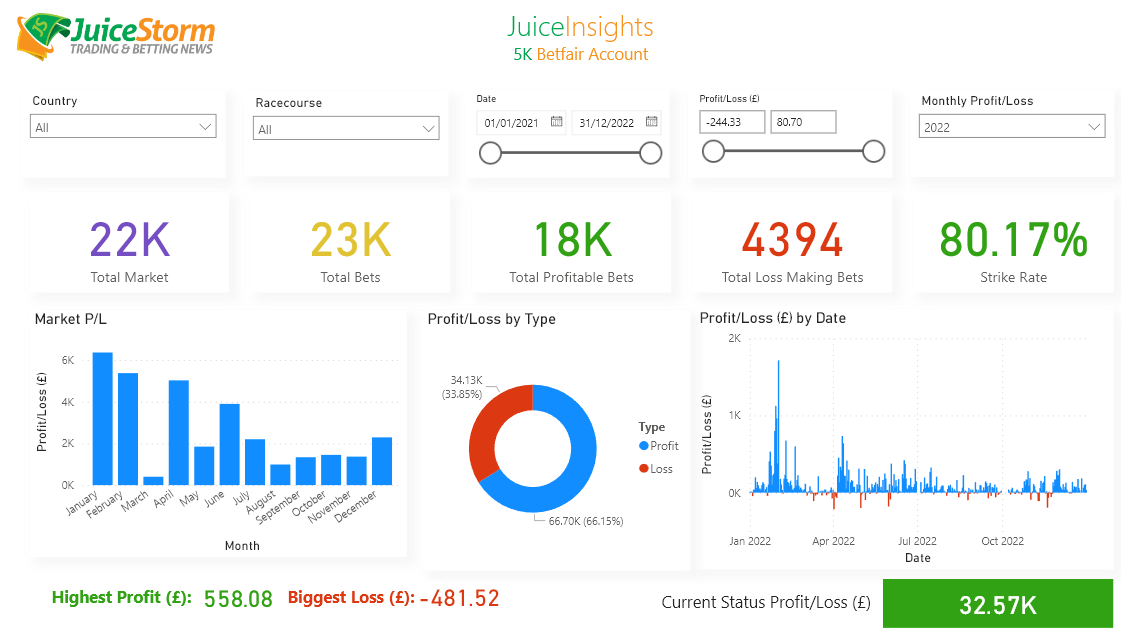Types and Class of Horse Races
This post was a response to a question about race types and how to try to avoid being limited by bookmakers through ignorance of the meaning of a race title.
Race Type and Bookmakers
Horse Racing is not an easy sport to understand from an outsider’s point of view. It has its own language and hierarchy and tends to assume that everybody understands. This is intended as a brief guide to the different types of races, with the intention of guiding people away from betting on horses or races which are likely to alert the bookmakers to the fact that you are looking for value bets.
Please note that any bet on any arb at any time can result in your account being limited or closed. My already limited Stan James account was finished off by a £25 bet on Kauto Star in the Cheltenham Gold Cup, clearly a case of the straw that broke the camel’s back.
Low class races are probably more dangerous to bet in because they often contain some horses which have been struggling in better races and have been “dropped in class”. Some trainers will deliberately run their horse in a grade which they know is too high, or in races at the wrong distance or on the wrong type of ground. The horse is repeatedly well beaten and its handicap mark drops (see below). A race of lower class is then chosen with the right conditions, and the stable money goes down.
This is NOT against the rules, since during all the races the horse is trying to win. The price of the horse, which could have been quite high in the morning, starts to fall, and this is known as a steamer. Betting on steamers with poor recent form in low class races will get you noticed very quickly by the bookies. Not all steamers win, and it is not uncommon to have more than one in the same race.
The Handicap
The all-important factor concerning the class of races is the handicap. All horses are given a handicap mark between 0 and about 150 on the flat and 0 and 200ish over jumps. This is expressed in lb (weight) and is directly related to the weight they will carry in handicap races. In order to be handicapped the horse has to either run 3 times or be placed, and these inexperienced horses run in maiden, novice and conditions races until they have shown enough to be given a rating. Horses with handicap marks can run in other races, but horses without cannot run in handicap races.
Handicap races restrict their entries to horses rated in a certain band eg 0-80 and this is the direct cause of trainers “bending” the rules as above to drop the handicap mark.
Weight for age, sex allowance and penalties
Horses do not mature until the age of 5 or 6, but are raced at a much younger age. In order to make mixed age races fair, there is an official scale of weight for age which changes throughout the year to try to mimic the increase in strength of the young horse as it matures. Therefore in “weight for age” races containing mixed age horses the weights will not all be the same.
Female horses are recognized as being weaker than male horses and are given a sex allowance, which I believe is 7lb over jumps and 5lb on the flat.
In many non handicap races (but not the best ones) horses which have won a race are given a weight penalty, which may be as low as 3lb or as high as 10lb for a win. Penalties can be cumulative, and may only apply if the win was in a race above a certain value.
Class of Races
Races are ranked in order of class, from 1-7.
Class 1 (”Pattern”) races are the best, with a minimum qualifying handicap rating, and are further divided as follows:
For jump (National Hunt) races:
Grade 1 – Championship races where the weight carried by each horse is determined by age and sex with no penalties for previous wins. There are 30 grade 1 NH races and these have the biggest prizes.
Grade 2 – Either weight for age but with penalties for previous wins or Limited Handicaps with narrow weight ranges.
Grade 3 – valuable open handicaps where the quality of the best runners means that poor horses don’t get a chance to run.
Listed races – Just below Graded races but are still recognised as high quality competition because of the standard of the horses involved. These may be handicaps or non-handicaps with weight for age and penalties.
For Flat races:
Classic Races – The 5 traditional races for 3 year olds, namely the 1000 and 2000 Guineas races, the Derby, the Oaks and the St Leger.
Group 1 – weight for age races of major international importance.
Group 2 – Less important than group 1 but still major international races.
Group 3 – Important domestic races.
Listed – High quality flat races which may be handicaps.
Class 2-7 – All other races (flat and jumps) are divided into the lower classes, based on the ratings of the horses allowed to run. Lower class races generally carry lower prize money.
Flat races usually carry higher prize money than jump races for the same class of race.
Types of Races
All races are either Handicaps or non-handicaps.
Handicaps are races where the horses all carry weights reflecting their alloted handicap mark. These will be modified by weight for age, sex allowances and penalties for recent wins (the handicap marks are changed at regular intervals and if the horse wins then runs before the new rating is applied, it will carry a penalty). Handicaps vary in class from 1 to 7 and the quality of horse is governed by the upper and lower limits of the ratings band for that particular race, eg 0-110 for a decent class race but 0-50 for a poor one. Handicap races restricted to 2 year old horses are called Nurseries.
Non-handicap races are often called Conditions races because they carry restrictions for entry, which may be related to age, rating, sex or past winnings.
In addition either type of race may be restricted further, for example to apprentice or amateur jockeys, or occasionally to horses bought at a particular sale.
Claiming races – do not fall neatly into either type. The weight the horse carries in these is determined by the trainer, who enters his horse to be claimed for a particular price. Any horse in the race is then available to be bought by anybody with the highest claim above the claiming price, which is related to the weight the horse carries. Because the weights are not related to the handicap mark, and because people with good horses tend to want to keep them, these races tend to contain horses with a problem of some kind (mental or physical) and can be the subject of gambles.
I would therefore regard claimers as dangerous betting mediums if you want to keep your accounts.
Example (from the Racing Post website):
Digibet Claiming Stakes (CLASS 6) (3yo+) Winner £2,047
Claiming races are never handicaps.
Handicaps and conditions races may be of various types:
Ordinary races with no other restrictions than age or ratings band. These form the majority of races.
Maiden races, open only to horses that have never won a race. These may contain high class horses which are very inexperienced, or low class horses which have raced countless times without success. The racecourse, class of race and prize money are a guide to the quality.
Unraced and very lightly raced horses with no rateable form which are well backed steamers in these races are not viewed kindly by bookmakers. Well backed horses with placings in previous races may be perfectly ok.
Novice or beginners races, open to horses who have won a restricted number of races (or may not have won at all). There is often more form available in these races than maidens but the horses are still inexperienced and caution may be advisable.
Selling races, in which the winner is auctioned after the race. These are the lowest class races, similar to claimers but worse, and the same warnings apply.
The following types of races are always non-handicaps:
NHF (National Hunt Flat) – these races are like novice races for jump horses, but without the jumps. They are designed to give young, inexperienced horses who are too slow for flat racing some experience of racing without the added danger of a fall. The same warnings apply as to maiden and novice races.
Hunters – these are for amateur riders only and are like an upper class point-to-point. The horses must have been hunting to qualify. The races tend to contain a huge spread of class of horse, from old horses who used to be very good steeplechasers (a current example is the previous Cheltenham Gold Cup 2nd Take The Stand), to young and up-coming point to pointers who may turn into good steeplechasers in the future (a past example was the Grand National winner Grittar) along with a majority of mediocre to useless horses out to give their riders a bit of fun. I have no evidence that these races are particularly disliked by bookmakers, although they are disliked by punters because of the difficulty of correlating NH form with point-to-point form. They often have short priced favourites.
Cross Country – these are popular in Ireland, but the only British course is at Cheltenham and there are a handful of these races a year. They tend to suit specific horses, and I have no evidence that they are unpopular with bookmakers.
Be aware that race types are always under review and subtle changes can creep in un-noticed.
Foreign Racing
Ireland – does not have the class banding 1-7, but they do have the grades 1-3 and listed categories equivalent to class 1. Irish races often contain reserves, which may make matched betting/arbing dangerous as they have no reduction factor at Betfair but might incur a rule 4 reduction at bookmakers. UK bookmakers treat Irish races with suspicion and I advise betting only on the class 1 type races except with Irish bookies such as Paddy Power and Boyles.
France and USA – The very biggest (Grade 1) races from these countries are probably fine, particularly if you are betting on a UK or Irish horse, but you must make sure that you are taking a fixed price not a tote bet as both countries have no fixed odds bookmakers. If in doubt, leave it alone,
Other countries – except in very special circumstances (eg an offer on a specific race, like the Melbourne Cup), betting on racing from anywhere else, particularly if it is an arb, is likely to destroy your accounts very quickly.






Comments are closed, but trackbacks and pingbacks are open.